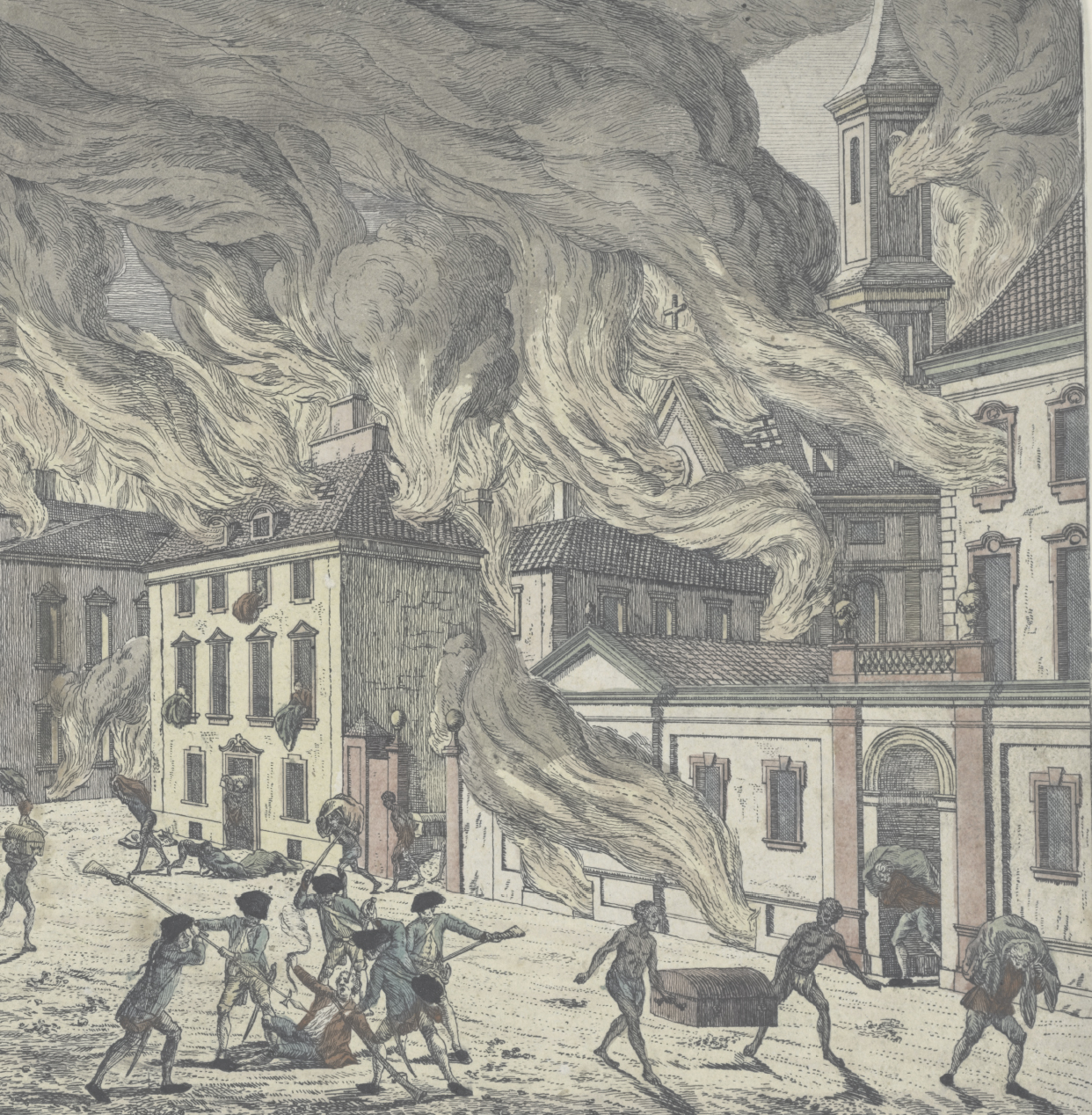America’s History: Printed Page 150
America: A Concise History: Printed Page 132
America’s History: Value Edition: Printed Page 130
The Problem of Empire
1763–1776
5
CHAPTER
IDENTIFY THE BIG IDEA
Consider whether the collapse of British authority in the thirteen rebellious colonies might have been avoided through compromise measures and more astute leadership. Was colonial independence inevitable, and was war the only way to achieve it?
In June 1775, the city of New York faced a perplexing dilemma. Word arrived that George Washington, who had just been named commander in chief of the newly formed Continental army, was coming to town. But on the same day, William Tryon, the colony’s crown-appointed governor, was scheduled to return from Britain. Local leaders orchestrated a delicate dance. Though the Provincial Congress was operating illegally in the eyes of the crown, it did not wish to offend Governor Tryon. It instructed the city’s newly raised volunteer battalion to divide in two. One company awaited Washington’s arrival, while another prepared to greet the governor. The “residue of the Battalion” was to be “ready to receive either the General or Governour Tryon, which ever shall first arrive.” Washington arrived first. He was met by nine companies of the volunteer battalion and a throng of well-wishers, who escorted him to his rooms in a local tavern. Many of this same crowd then crossed town to join the large group assembled to greet the governor, whose ship was just landing. The crowd met him with “universal shouts of applause” and accompanied him home.

This awkward moment in the history of one American city reflects a larger crisis of loyalty that plagued colonists throughout British North America in the years between 1763 and 1776. The outcome of the Great War for Empire left Great Britain the undisputed master of eastern North America. But that success pointed the way to catastrophe. Convinced of the need to reform the empire and tighten its administration, British policymakers imposed a series of new administrative measures on the colonies. Accustomed as they were to governing their own affairs, colonists could not accept these changes. Yet the bonds of loyalty were strong, and the unraveling of British authority was tortuous and complex. Only gradually — as militancy slowly mounted on both sides — were the ties of empire broken and independence declared.